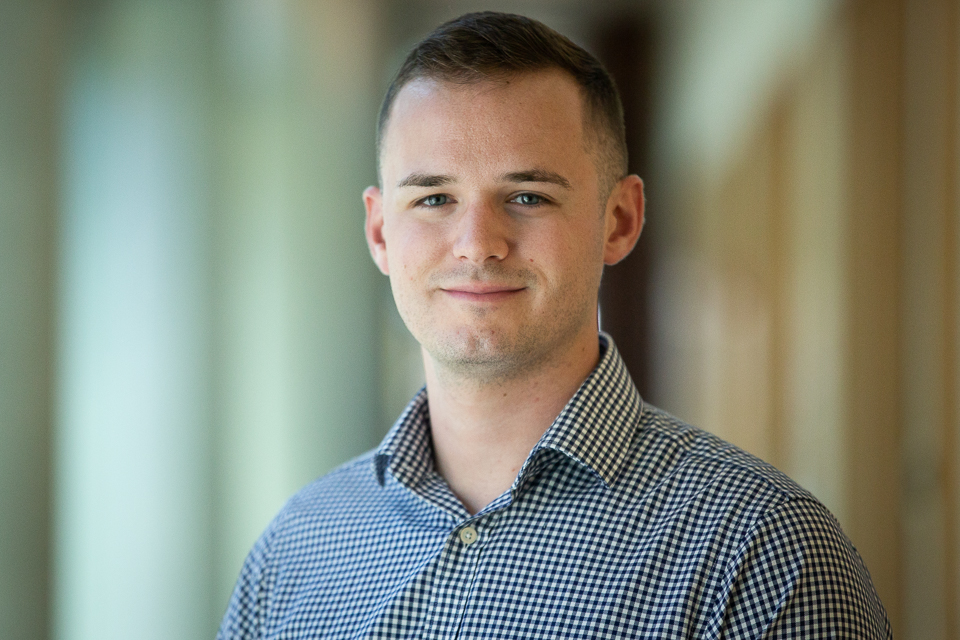Introduced to Coding as a Senior, Math Major Pursues His Newfound Interest Through Brandeis's Computer Science Program for Non-Majors

July 7, 2022
Sydney Adams | Graduate School of Arts and Sciences
Computer science was completely foreign to Master’s student Alex Romer, until he took his first course in the field during his senior year as an undergraduate. “I had written off computer science as a subject that just was not something I could ever be good at,” he says, “despite never having written a single line of code.” Romer thought of computers as “magic” until the first day of his senior year. “I wrote my first line of code, and it was love at ‘Hello, world!’” From that moment forward, Romer says he had, “an insatiable appetite to learn more about computer science.” As a student who had focused the majority of his studies in the field of mathematics, Romer had to find a graduate program in computer science that could fill the gaps in his knowledge, which is how he found Brandeis’ Master of Science in Computer Science for Non-Majors.
While searching for graduate programs that offered curriculum for students without a computer science background, Brandeis remained high on Romer’s list. He chose Brandeis because of its “reputation for excellent academics.” Ultimately, Romer says, “Brandeis provides everything I need to succeed” and “would allow me to dedicate my full attention to learning computer science.” After completing his first year at Brandeis, He has seen all of the elements that prompted him to apply for Brandeis in effect. “Basically, almost all my time is spent studying and practicing computer science, which is exactly what I wanted going into this program,” he says.
Romer has been impressed by Brandeis faculty. “Every professor I have had at Brandeis has been willing to match the effort put in by their students to ensure their success,” he says. “They are always open to feedback, and may adjust the course several times throughout the semester to match this feedback. I have never been in a position where I wasn’t able to get the help I needed.” This experience with the faculty has allowed Romer to “be able to learn about so many different aspects of computer science in such a short amount of time,” he says.
Because of the great support and guidance from Brandeis, Romer was able to apply for a cybersecurity internship at National Grid. Romer describes his work as, “ensuring that IT projects being developed for the company meet an internal set of security standards.” Although Romer has not taken any classes on cybersecurity at Brandeis, “this role requires that I have a broad understanding of concepts within computer science,” he says, “The classes I have taken at Brandeis have laid a wonderful foundation of practical and theoretical computer science knowledge.”
As for advice for students interested in pursuing a degree in computer science from Brandeis, without any foundational experience, Romer says, “Don’t just be satisfied with just what you learn from your classes!” For Romer, “computer science is a massive field with an endless amount of things to learn. Take the time to really dive deeper into areas that interest you and expand upon the knowledge gained from courses.”






